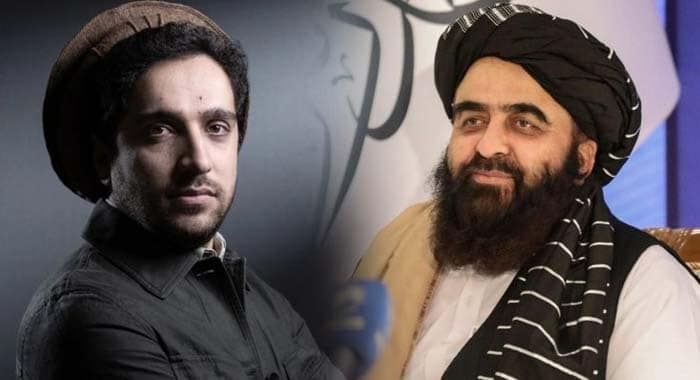Ahmad Massoud, leader of the National Resistance Front (NRF), has revealed that senior Taliban officials openly dismissed elections as “un-Islamic” during high-level talks in Tehran in 2022, underscoring the group’s hostility to democracy and its determination to impose absolute clerical rule on Afghanistan.
Speaking on social media platform X, Massoud said Taliban Foreign Minister Amir Khan Muttaqi told him directly that elections “have no place in Islam.” The exchange came during negotiations brokered by Iran’s Revolutionary Guard Corps shortly after Kabul’s fall, when the Taliban sought to pressure resistance leaders into surrender.
Massoud said he immediately challenged the Taliban’s rejection of elections, telling Muttaqi that if such a claim were true, then Islamic nations such as Iran, Indonesia, Turkey, and Pakistan — all of which hold elections — “must not have realised their actions were un-Islamic.” His response laid bare the Taliban’s selective use of religion as a tool to justify its monopoly on power.
In January 2022, Muttaqi also met with Massoud, veteran commander Ismail Khan, and other political figures in Tehran. Despite Taliban assurances that opposition leaders could return safely to Afghanistan, the group has since intensified its repression — silencing dissent, dismantling electoral institutions, and ruling by decree under its unelected supreme leader, Hibatullah Akhundzada.
Massoud has repeatedly emphasised that Afghans have a fundamental right to elect their leaders. He has signaled readiness for dialogue with the Taliban, but only if they accept the principles of peace, justice, and elections. “Without elections, there can be no legitimacy,” he has consistently argued.
Since retaking power in August 2021, the Taliban has abolished Afghanistan’s constitution, dissolved democratic bodies, and concentrated authority in the hands of hardline clerics. Analysts note that this rejection of political pluralism places the Taliban starkly at odds with the wider Muslim world, where democratic participation exists in varying forms from South Asia to the Middle East.
Opponents and international observers alike describe Taliban governance as authoritarian and illegitimate, pointing out that its ideological rigidity denies Afghanistan’s 40 million citizens any role in shaping their country’s future. Massoud’s disclosure further reinforces global concerns that the Taliban’s rule is rooted not in faith, but in fear, exclusion, and the suppression of choice.





